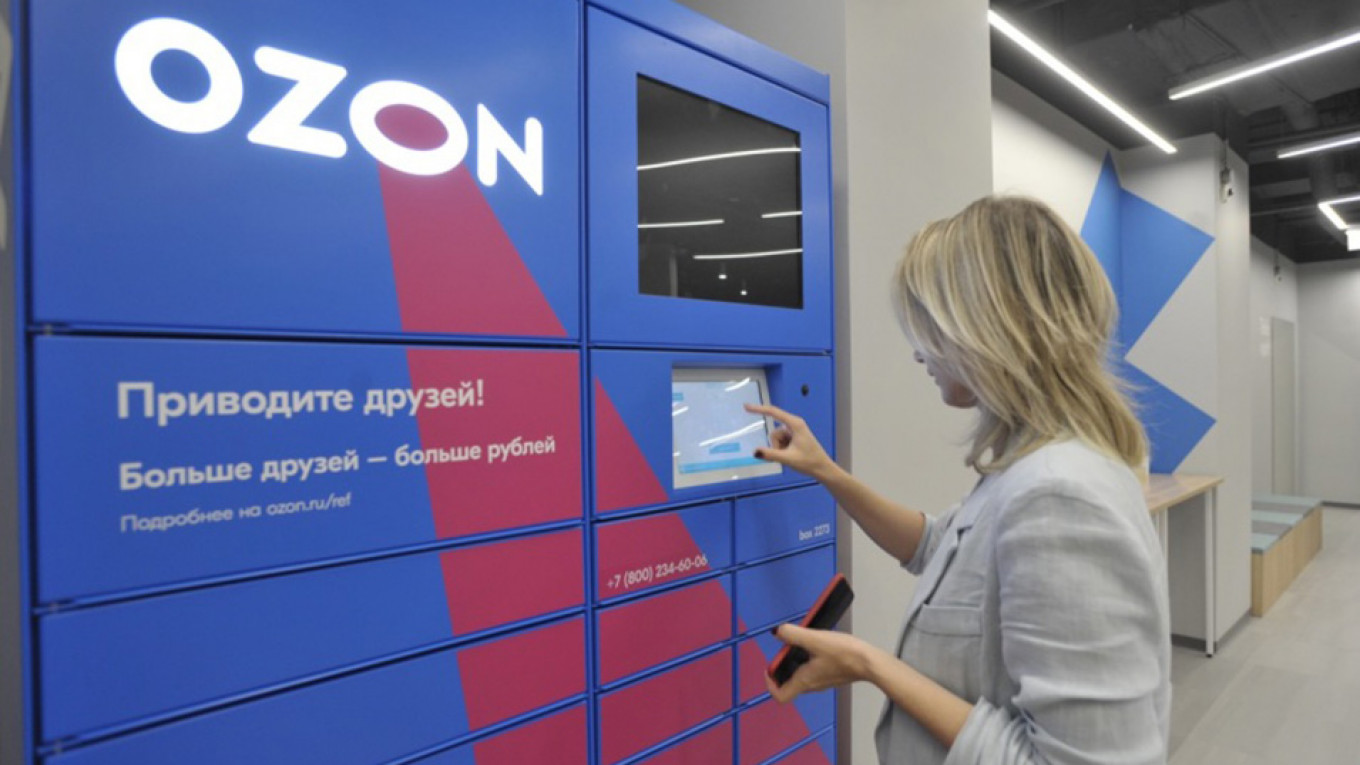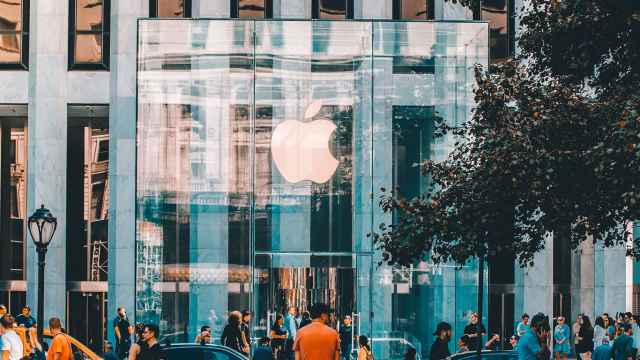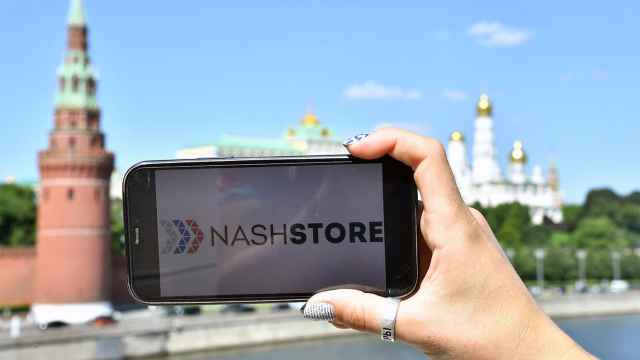Russia’s old economy is stagnating, but a new one built around e-commerce is growing in double digits and still accelerating. All the conditions for e-commerce to take off are now in place, says Alexander Shulgin, CEO of Ozon, one of Russia’s big-three online retailers. In his first extensive interview with bne IntelliNews, he says the sector can look forward to at least a decade of fast growth.
Online retailing already accounts for 4.5% of total retail turnover and is growing by 25% a year, but the biggest companies are all growing by 70% or more. The race is on to capture as many loyal customers as possible, as in this game the industry leaders come to dominate each segment once the business matures.
The following is an edited version of a bne IntelliNews podcast. Listen to the full interview here.
The old economy is stagnating but the new economy is growing ten times faster and Ozon is growing at 80%. What is driving this extraordinary rate of growth?
In our sector of the economy we see a huge opportunity for growth and our company last year was growing at about 80% year-on-year. Now we are seeing it accelerate again to triple digits and we see the opportunity to grow even faster.
The penetration of e-commerce in Russia is relatively low, but the demand is huge. There is plenty of unsatisfied demand. As we develop our logistic channels and bring our goods closer to where people live we see that people are absolutely happy to buy virtually everything online.
When Ozon set up in the 90s it started out selling books; it was virtually a carbon copy of Amazon and in the very early years if you typed “amazon.ru” into the URL you got taken to the Ozon site. But the company has changed out of all recognition and has its own strong brand today. To what extent are the leading Russian e-commerce sites following the same model as elsewhere?
All big e-commerce companies have lots of similarities, but at the end of the day you have to focus on your own market. What we have now is a combination of a retail business and a marketplace where our sellers can put their goods into our fulfillment centers and we will ship the orders to the customer. There is also a virtual marketplace where the seller can store their goods in their own storage and we will only do delivery.
We launched the marketplace only a year ago but it is already 20% of our turnover. It is growing very fast. We have only started to tap this potential. Our sellers are currently only from Moscow, but we plan to open this marketplace for all sellers across the country so any producer in any region can ship their goods to the fulfillment center and we will ship the goods to the customers nationally.
For a producer in say, Novosibirsk, or anywhere else, it becomes an excellent opportunity to get access to the whole country, including the capitals. That would be a very different business for a small or medium-sized enterprise (SME) if they can reach the entire country.
In the past we have always talked about two Russias: Moscow and everywhere else. Are things still Moscow-driven? Are you also trying to break down that barrier?
Moscow is a very important market but e-commerce thrives in the regions. The people there don't have access to well-developed retail. The assortment of goods on offer is limited and the prices are higher. E-commerce solves all those issues. We provided an unlimited “Moscow assortment” of goods and Moscow prices to the people who live in small cities.
We see small cities' growth rate in triple digits and we think this growth rate will be maintained for the next three to four years at least.
Russia’s geography makes it ideal for e-commerce and hard for traditional retailers, who would have to hold lots of inventory spread out over large areas. We can hold inventory in a few fulfillment centers and deliver the goods in one to three days anywhere.
So the key to this business is not the site, the marketing or anything else, as it all comes down to logistics?
I believe logistics is what has been holding the development of e-commerce back: the lack of investment into a distribution network. I think an e-commerce business needs six or seven logistics centers across the country to allow 24-48 hour deliveries.
We have three delivery channels. We developed couriers like any e-commerce player does. We also do lockers. They are growing at a very fast rate and already account for 15-20% of sales. In Russia the courier has to meet the customer to transfer the goods, which is not convenient. Lockers are more convenient as you don't have to meet anyone. And we do self pick-up points too of course.
We place the lockers close to where people live or work, in offices or in supermarkets close to where people live. We are now the biggest operators of lockers in Russia. We have 4,000 now and plan for 7,000 by the end of this year. We are concentrating now on bigger cities, however, the market demands tens of thousands of these lockers.
Why is e-commerce growing so fast? People are comfortable with buying online? Don't you face competition from China, which has stormed into the Russian market in recent years?
Now all the fundamental things are in place for e-commerce to start growing. Everyone has a mobile phone. The cost of mobile data is very attractive. People are willing to buy online and they trust the payment systems and players like us.
The entry of players like [China’s e-commerce retail giant] Alibaba helps as customers have seen spending a small amount works, as the deliveries always eventually arrive. Now they are willing to spend larger amounts, which helps us.
Also the trust of the investment community is higher. Ozon was able to raise hundreds of millions of dollars that can be used to grow the business and logistics channels.
The market is so huge and the pace of growth so fast that we don't feel that we are competing with Alibaba. We are jointly developing the market. We are converting people from buying offline to buying online. I think we are still a long way off before there is real competition between the players.
And our customer proposition is very different from Chinese companies. The delivery time from China takes several weeks, whereas if we have a fulfillment center nearby we can deliver the next day or at least within 48 hours.
The Chinese also deliver lightweight goods, things like clothes and apparel, whereas we can delivery bulky items that are impossible to ship from China. In our marketplace locals quickly learn what sells on Alibaba and then import it [from China] to Russia and sell it on the Ozon marketplace, cutting out the long transit waiting times, but at very competitive prices compared with the Chinese sourced goods.
Whoever has local customers and local infrastructure will win the market in the end.
What are people buying? Is it sourced locally or imported?
We sell everything. We started with books. But the biggest items today are apparel, fast-moving consumer goods (FMCG), home and decor, food with a longer shelf life. Fresh food has a lot of potential too, but it requires different logistics. I can’t name a product category we have that is not growing very fast — in high double or triple digits.
The demand and growth we create does, and will, stimulate investment into local manufacturing of goods, but the share in retail of e-commerce is still small and the business is dominated by the bricks and mortar very large companies.
In terms of sourcing, at the moment it is totally mixed and depends on the category. Most electronic goods are imported, textiles are mixed, while much of the food and décor goods are locally made.
The demand and growth we create does, and will, stimulate investment into local manufacturing of goods. Soon we will reach a point where the local manufacturers can sell on our marketplace nationally, which is ideal for an SME manufacturer. The manufacturer can immediately list the product, while we deal with shipping across the country and connecting with customers. All this will stimulate local production.
The share of e-commerce in retail is still small, as the business is dominated by bricks and mortar companies. It is still early days, but the share of e-commerce is growing in all countries and in Russia it can easily account for 30% in the next ten years.
Like with supermarkets, there seems to be a race for market share at the moment but at some point will a consolidation start?
The market is very fragmented at the moment with thousands of e-commerce players. But all markets develop this way. Eventually the market consolidates with the very biggest players accumulating the biggest shares.
Consolidation will start, but all the restrictions on growth are currently inside the company and not driven by competition but by our ability to grow logistics channels, to place fulfillment centers, etc. A handful of companies are already doing three-quarters of the business.
You mentioned investors are hot for tech investment and you recently took in 5 billion rubles ($300mn) from investors. While investment into Russia is well below par this doesn't seem to be a problem in the tech sector?
Our two main investors are [multi-industry conglomerate] AFK Sistema and [U.S.-run fund] Baring Vostok Capital Partners (BVCP). The recent investment was a convertible loan.
Our shareholders are big fans of e-commerce and are willing to invest into our business. BVCP has been there forever and invested at the end of 2000. Sistema is more recent and invested in 2014. Ozon is now the biggest tech investment Sistema has.
The capacity for growth is for many, many years. It makes sense to invest now. E-commerce will require additional investment rounds given the growth rate. But we are doing it in steps. It’s up to the shareholders if they want to IPO the company. BVCP's most famous investment was into [Russian internet search engine] Yandex that IPO'd in 2010 with an $11 billion valuation. Ozon is also a candidate for another multi-billion dollar IPO eventually.
But our market is much bigger. Yandex operated in the advertising segment, but that is a fraction of the retail business, although it is moving beyond advertising now. Whoever becomes the leader in e-commerce will become a very valuable company indeed.
This article is an edited version of a bne podcast “Ozon battling it out in Russia’s e-commerce race.”
This article first appeared in bne IntelliNews.
Listen to the full interview here. Sign up to receive bne podcasts by email for free here.
A Message from The Moscow Times:
Dear readers,
We are facing unprecedented challenges. Russia's Prosecutor General's Office has designated The Moscow Times as an "undesirable" organization, criminalizing our work and putting our staff at risk of prosecution. This follows our earlier unjust labeling as a "foreign agent."
These actions are direct attempts to silence independent journalism in Russia. The authorities claim our work "discredits the decisions of the Russian leadership." We see things differently: we strive to provide accurate, unbiased reporting on Russia.
We, the journalists of The Moscow Times, refuse to be silenced. But to continue our work, we need your help.
Your support, no matter how small, makes a world of difference. If you can, please support us monthly starting from just $2. It's quick to set up, and every contribution makes a significant impact.
By supporting The Moscow Times, you're defending open, independent journalism in the face of repression. Thank you for standing with us.
Remind me later.







